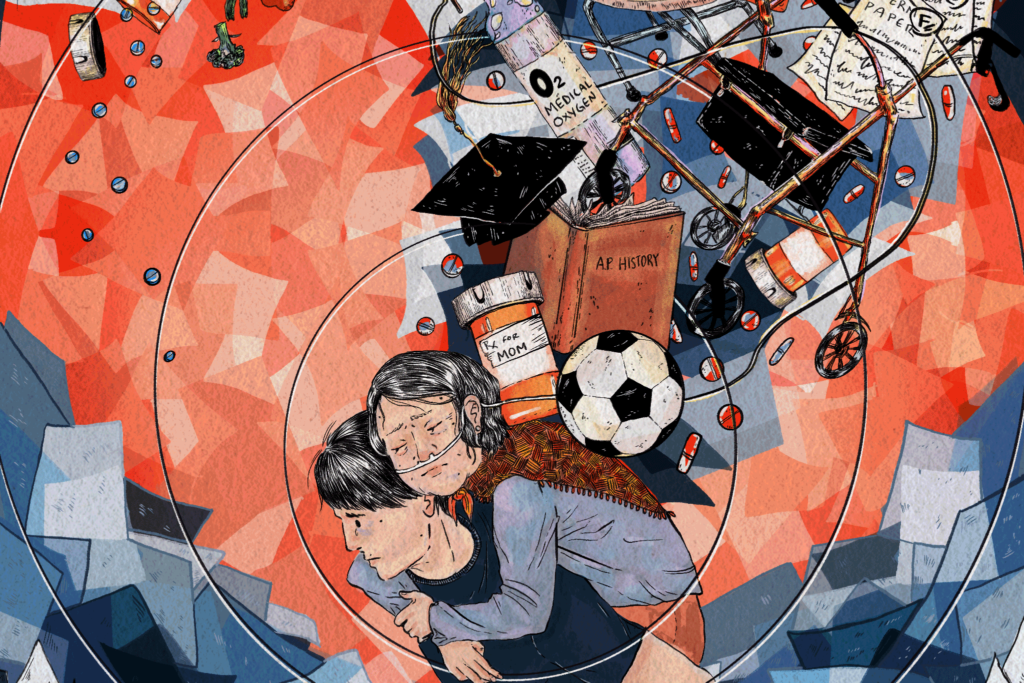Caregiving Students: The Unseen Heroes Among Us
In a world where high school students are typically preoccupied with schoolwork, extracurricular activities, and socializing, there are some who shoulder responsibilities far beyond their years. One such student is Joshua Yang, a senior from St. Paul, Minnesota, who at the age of 15 became his mother’s primary caregiver after she was diagnosed with Parkinson’s disease following a car accident.
Yang’s story is not unique. In fact, researchers estimate that there are at least 5.4 million children in the U.S. who provide care to an adult in their home. As state officials consider cuts to federal Medicaid funding for home care services, the number of young caregivers like Yang is expected to rise.
The impact of caregiving on young people can be profound. Studies have shown that young caregivers often experience declines in their health and academic performance. Yang, for example, saw his grades drop and had to quit his after-school activities to care for his mother.
While there are some support systems in place for young caregivers, such as the National Family Caregiver Support Program, the future of these programs remains uncertain. If proposed cuts to Medicaid are approved, home- and community-based service programs that provide financial relief to family caregivers could be at risk.
For many young caregivers, the cost of their responsibilities is steep. They often experience higher levels of depression, anxiety, and stress compared to their peers. Their physical health may also suffer, as they prioritize the care of their loved ones over their own well-being.
Recognizing the unique challenges faced by young caregivers, some states are taking steps to support these students. In Colorado, a recent statewide survey found that over 12% of high schoolers provide care for a family member. In Rhode Island, the education department has mandated that every middle and high school develop policies to support caregiving students.
One organization leading the way in supporting caregiving youth is the American Association for Caregiving Youth. Through initiatives like the Caregiving Youth Project, they provide eligible students with peer support, medical care training, and other resources to help them navigate their caregiving responsibilities.
As for Joshua Yang, he has put his aspirations of studying civil engineering on hold to attend community college in order to continue caring for his mother. However, he sees a glimmer of hope as his younger sisters, now 12 and 13, step up to share the caregiving load.
In a world where young caregivers like Joshua Yang often go unnoticed, it is important to recognize and support these unsung heroes among us. They embody resilience, compassion, and selflessness in the face of adversity, and their stories serve as a reminder of the strength and courage that exist within the younger generation.


